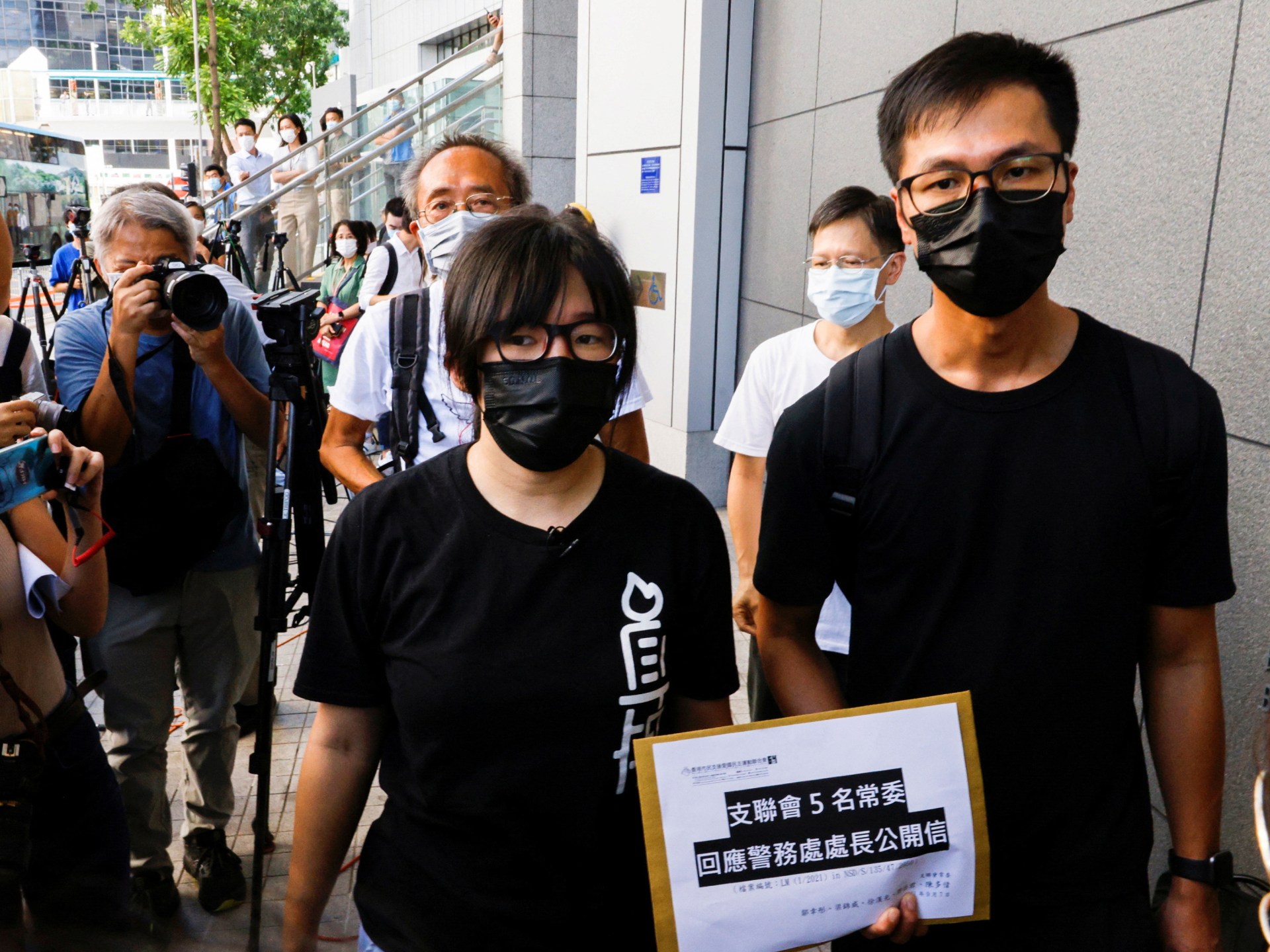Hong Kong court convicts 3 members of 1989 Tiananmen vigil group
Court convicted Hong Kong democracy activist and barrister Chow Hang-tung, as well as Tang Ngok Kwan and Tsui Hon Kwong.
Three former members of a Hong Kong group that organised annual vigils to mark China’s bloody 1989 Tiananmen Square crackdown have been found guilty of not complying with a national security police request for information.
Prominent Hong Kong pro-democracy activist and barrister Chow Hang-tung, 38, was among those convicted by the magistrate court on Saturday.
Chow is a former vice chairperson of the Hong Kong Alliance in Support of Patriotic Democratic Movements in China. Two other former standing committee members of the Alliance, Tang Ngok Kwan and Tsui Hon Kwong, were also found guilty.
The now-disbanded Alliance was the main organiser of Hong Kong’s June 4 candlelight vigil for victims of China’s crackdown on peaceful pro-democracy supporters in Tiananmen Square.
Every year, the vigil drew tens of thousands of people in the largest public commemoration of its kind on Chinese soil.
The sentencing of the three is expected on March 11, with a maximum jail term of six months for this particular offence.
Chow is already serving two other prison terms for unlawful assembly linked to her involvement in organising Tiananmen commemoration events and faces a separate, graver charge of subverting state power through the Alliance.
Since Hong Kong’s massive pro-democracy protests in 2019, authorities have not allowed the vigil to take place on COVID-related grounds. The Alliance disbanded in September 2021 after authorities arrested several senior members of the group, including Chow.
Three former leaders of a group which organised Hong Kong’s annual Tiananmen vigil have been convicted under the Beijing-imposed national security law for failing to give police information on members and other data.
— Tom Grundy (@tomgrundy) March 4, 2023
During the trial that only started late last year – more than a year after the defendants were arrested – government prosecutor Ivan Cheung accused the Alliance of being a “foreign agent” for an unnamed group after it had allegedly received HK$20,000 ($2,547) in funds.
Chow denied this in court, saying the Alliance was an independent civil society group run by Hong Kongers and that the case against her and the others amounted to “political persecution”. Chow, a trained lawyer, defended herself and denied the group was a threat to national security.
“If the Alliance was a threat to anything, it was a threat to the monopolisation of power and manipulation of truth,” Chow said in her closing submission.
During the trial, much of the prosecution’s evidence was heavily redacted or withheld – even from the judge – under a “public interest immunity”.
The court also ruled that the prosecution did not need to prove the Alliance was a foreign agent.
During the trial, defence lawyer Albert Wong said the redaction of evidence and waiver of the burden of proof would “[allow] the Commissioner of Police to put a blank label of foreign agent to anybody”.
Magistrate Peter Law, who was hand-picked to hear national security cases by Hong Kong’s Beijing-backed leader, said in a written judgement on Saturday that it was necessary for the police to “ascertain the background” of the group given its political activities and “nexus of interactions with local and non-local organisations and people.”
Hong Kong’s national security law, which punishes acts including subversion and collusion with foreign forces, has been criticised by some Western governments as a tool to crush dissent.
Chinese and Hong Kong officials say the law is necessary to restore stability to the city after the city’s protracted anti-China protests in 2019.




